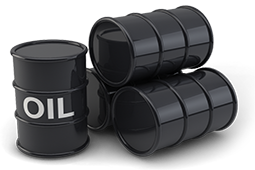
Oil Hits $70

Brent crude futures soared to a high of $70.74 a barrel, up $1.14, or 1.66%, from Friday’s settlement, Reuters reported.
US West Texas Intermediate crude was at $63.92 a barrel, up 87 cents, or 1.38%, after touching $64.72, the highest since April.
The gains extended Friday’s more than 3% surge after a US air strike killed Qassem Soleimani and his comrades on Friday, heightening concerns about an escalation in conflict in the Middle East and the possible impact on oil supplies.
The region accounts for nearly half of the world’s oil production, while a fifth of the world’s oil shipments pass through the Strait of Hormuz.
On Sunday US President Donald Trump threatened to impose sanctions on Iraq, the second largest producer among the Organization of the Petroleum Exporting Countries, if US troops were forced to withdraw from the country. Baghdad earlier called on US and other foreign troops to leave Iraq.
Trump also said that the United States would retaliate against Iran if Tehran were to strike back after the killing.
“The situation brings lots of uncertainty and geopolitical tea-leaf reading on reactions. While the closure of the Strait of Hormuz remains a very unlikely event, the deterioration in Iraq bears supply risks,” said Norbert Rucker, head of economics at Swiss bank Julius Baer.
“Geopolitics tend to be a temporary force on oil markets and we believe this time is no different. We raise our near-term forecast to $65 per barrel, and maintain a neutral view”.


Gold price edges up as market awaits Fed minutes, Powell speech

Glencore trader who led ill-fated battery recycling push to exit

Emirates Global Aluminium unit to exit Guinea after mine seized

UBS lifts 2026 gold forecasts on US macro risks

Iron ore price dips on China blast furnace cuts, US trade restrictions

Roshel, Swebor partner to produce ballistic-grade steel in Canada

US hikes steel, aluminum tariffs on imported wind turbines, cranes, railcars

EverMetal launches US-based critical metals recycling platform

Afghanistan says China seeks its participation in Belt and Road Initiative

First Quantum drops plan to sell stakes in Zambia copper mines

Ivanhoe advances Kamoa dewatering plan, plans forecasts

Texas factory gives Chinese copper firm an edge in tariff war

Pan American locks in $2.1B takeover of MAG Silver

Iron ore prices hit one-week high after fatal incident halts Rio Tinto’s Simandou project

US adds copper, potash, silicon in critical minerals list shake-up

Barrick’s Reko Diq in line for $410M ADB backing

Gold price gains 1% as Powell gives dovish signal

Electra converts debt, launches $30M raise to jumpstart stalled cobalt refinery

Gold boom drives rising costs for Aussie producers

First Quantum drops plan to sell stakes in Zambia copper mines

Ivanhoe advances Kamoa dewatering plan, plans forecasts

Texas factory gives Chinese copper firm an edge in tariff war

Pan American locks in $2.1B takeover of MAG Silver

Iron ore prices hit one-week high after fatal incident halts Rio Tinto’s Simandou project

US adds copper, potash, silicon in critical minerals list shake-up

Barrick’s Reko Diq in line for $410M ADB backing

Gold price gains 1% as Powell gives dovish signal

Electra converts debt, launches $30M raise to jumpstart stalled cobalt refinery

















